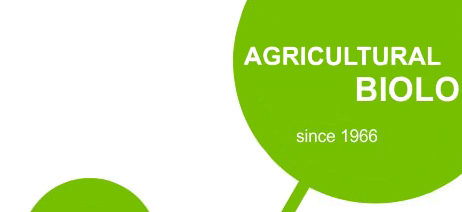doi: 10.15389/agrobiology.2018.1.132eng
UDC 633.491:577.15:575.174.015.3
Acknowledgements:
Experiments were carried out using equipment of Bioengineering Center (Research Center of Biotechnology RAS)
Supported financially by the Complex Research Program for potato breeding and seed production
ALLELE DIVERSITY FOR ACID VACUOLAR INVERTASE GENE Pain-1
FRAGMENT IN POTATO (Solanum tuberosum L.) VARIETIES AND LINES
M.A. Slugina1, E.O. Shmelkova1, A.A. Meleshin2, E.Z. Kochieva1
1Research Center of Biotechnology RAS, Federal Agency for Scientific Organizations, 33/2, Leninskii prospect, Moscow, 119071 Russia, e-mail shmelkoffa@gmail.com, ekochieva@yandex.ru, mashinmail@mail.ru (✉ corresponding author);
2Lorkh All-Russian Research Institute of Potato Farming, Federal Agency for Scientific Organizations,23, ul. Lorkha, pos. Korenevo-1, Lyubertsy Region, Moscow Province, 140051 Russia, e-mail a-mela@mail.ru
ORCID:
Slugina M.A. orcid.org/0000-0003-1281-3837
Meleshin A.A. orcid.org/0000-0002-6018-3676
Shmelkova E.O. orcid.org/0000-0002-1046-7742
Kochieva E.Z. orcid.org/0000-0002-6091-0765
Received October 2, 2017
The economic efficiency of potato production depends not only on the yield quantity and quality, but also on the tuber storage conditions. The tuber nutritional and technical value is determined by the starch content. Under the cold stress, the starch degrades into reducing sugars (cold-sweetening), which significantly reduces the tuber quality. Plant invertases catalyze irreversible hydrolysis of sucrose into glucose and fructose. Nowadays it is definitely known that vacuolar acid invertase (Pain-1) plays a major role in the cold induced sweetening of potato tubers. In the present work genetic diversity and allelic polymorphism of Pain-1 gene associated with important agronomical traits of potato tubers is characterized. Gene fragment (exon 5—exon 7) polymorphism was analyzed in 69 cultivars and lines of Russian and foreign breeding origin. In the Pain-1 nucleotide sequences, 66 SNPs were identified, of which 25 SNPs (SNP1628, SNP1648, SNP1700, SNP1709, SNP1717, SNP1724, SNP1726, SNP1738, SNP1788, SNP1794, SNP1797, SNP1808, SNP1815, SNP1818, SNP1831, SNP1837, SNP1847, SNP1861, SNP1865, SNP1872, SNP1885, SNP1886, SNP1890, SNP1907, SNP1909) were described for the first time. The studied fragment contains a significant replacement for SNP1544 (C/A) which correlates with an increased starch content in the tubers and is homozygous in the Kazakhstani varieties Ulan and Astana. In the exons, 27 out of 42 SNPs led to amino acid substitutions. Most accessions had single amino acid substitutions. The maximum substitution number (seven to eight) characterized the Zhukovskii ranii variety and the lines 165 and 162. No substitutions were observed in the Frittella variety and the line 84. Therefore, the common level of gene fragment polymorphism in the analyzed potato accessions was shown to be rather high. Among the analyzed sequences, 78 allelic variants were described, including 64 specific variants and 14 variants common for several accessions. The obtained data may be helpful in potato breeding for an increase in starch content.
Keywords: acid vacuolar invertase, Pain-1, exons, polymorphism, SNPs, amino acid substitution, potato breeding, starch content in tubers, cold-induced sweetening
REFERENCES
- Van Harsselaar J., Lorenz J., Senning M., Sonnewald U., Sonnewald S. Genome-wide analysis of starch metabolism genes in potato (Solanum tuberosum L.). BMC Genomics, 2017, 18: 37 CrossRef
- Avigad G. Sucrose and other disaccharides. In: Encyclopedia of plant physiology. T.A. Loewus, W. Tanner (eds.). Springer-Verlag, Heidelberg, 1982.
- Martin C., Smith A. Starch biosynthesis. Plant Cell, 1995, 7(7): 971-985 CrossRef
- Bertoft E., Seetharaman K. Starch structure. In: Starch: origins, structure and metabolism. I.J. Tet-low (ed.). Society for Experimental Biology, London, 2002.
- Ye J., Shakya R., Shrestha P., Rommens C. Tuber-specific silencing of the acid invertase gene substantially lowers the acrylamide-forming potential of potato. J. Agr. Food Chem., 2010, 58(23): 12162-12167 CrossRef
- Wiberley-Bradford A., Busse J., Bethke P. Temperature-dependent regulation of sugar metabolism in wild-type and low-invertase transgenic chipping potatoes during and after cooling for low-temperature storage. Postharvest Biology and Technology, 2016, 115: 60-71 CrossRef
- Liu X., Song B., Zhang H., Li X.Q., Xie C., Liu J. Cloning and molecular characterization of putative invertase inhibitor genes and their possible contributions to cold-induced sweetening of potato tubers. Mol. Genet. Genomics, 2010, 284: 147-159 CrossRef
- Rausch T., Greiner S. Plant protein inhibitors of invertases. Biochim. Biophys. Acta, 2004, 1696: 253-261 CrossRef
- Cheng S., Su Z., Xie C., Liu J. Effects of variation in activities of starch-sugar metabolic enzymes on reducing sugar accumulation and processing quality of potato tubers. Scientia Agricultura Sinica, 2004, 3: 1904-1910.
- Halford N., Curtis T., Muttucumaru N., Postles J., Elmore J., Mottram D. The acrylamide problem: a plant and agronomic science issue. J. Exp. Bot., 2012, 63(8): 2841-2851 CrossRef
- Shepherd L., Bradshaw J., Dale M., McNicol J., Pont S., Mottram D., Davies H. Variation in acrylamide producing potential in potato: segregation of the trait in a breeding population. Food Chem., 2010, 123: 568-573 CrossRef
- Liu X., Zhang C., Ou Y., Lin Y., Song B., Xie C., Liu J., Li X.Q. Systematic analysis of potato acid invertase genes reveals that a cold-responsive member, StvacINV1, regulates cold-induced sweetening of tubers. Mol. Genet. Genomics, 2011, 286(2): 109-118 CrossRef
- Wu L., Bhaskar P.B., Busse J., Zhang R., Bethke P.C., Jiang J. Developing cold-chipping potato varieties by silencing the vacuolar invertase gene. Crop Sci., 2011, 51: 981-990 CrossRef
- Clasen B.M., Stoddard T.J., Luo S., Demorest Z.L., Li J., Cedrone F., Tibebu R., Davison S., Ray E.E., Daulhac A., Coffman A., Yabandith A., Retterath A., Haun W., Baltes N.J., Mathis L., Voytas D.F., Zhang F. Improving cold storage and processing traits in potato through targeted gene knockout. Plant Biotechnol. J., 2016, 14(1): 169-176 CrossRef
- Bhaskar P., Wu L., Busse J., Whitty B., Hamernik A., Jansky S., Buell C., Bethke P., Jiang J. Suppression of the vacuolar invertase gene prevents cold-induced sweetening in potato. Plant Physiol., 2010, 154(2): 939-948 CrossRef
- Xin Z., Browse J. Cold comfort farm: the acclimation of plants to freezing temperatures. Plant, Cell & Environment, 2000, 23: 893-902 CrossRef
- Draffehn A., Meller S., Li L., Gebhardt C. Natural diversity of potato (Solanum tuberosum) invertases. BMC Plant Biol., 2010, 10: 271 CrossRef
- Slugina M.A., Snigir' E.A., Ryzhova N.N., Kochieva E.Z. Molekulyarnaya biologiya, 2013, 47(2): 243-250 CrossRef (in Russ.).
- Slugina M.A., Shchennikova A.V., Kochieva E.Z. TAI vacuolar invertase orthologs: the interspecific variability in tomato plants (Solanum section Lycopersicon). Mol. Genet. Genomics, 2017, 292(5): 1123-1138 CrossRef
- Slugina M.A., Kochieva E.Z. Vavilovskii zhurnal genetiki i selektsii, 2014, 18: 718-723 (in Russ.).
- Li L., Tacke E., Hofferbert H., Lübeck J., Strahwald J., Draffehn A. Validation of candidate gene markers for marker-assisted selection of potato cultivars with improved tuber quality. Theor. Appl. Genet., 2013, 126(4): 1039-1052 CrossRef
- Liu X., Cheng S., Liu J., Ou Y., Song B., Zhang C., Lin Y., Li X., Xie C. The potato protease inhibitor gene, St-Inh, plays roles in the cold-induced sweetening of potato tubers by modulating invertase activity. Postharvest Biol. Tec., 2013, 86: 265-271 CrossRef
- Bahaji A., Li J., Sánchez-López Á., Baroja-Fernández E., Muñoz F., Ovecka M., Almagro G., Montero M., Ezquer I., Etxeberria E., Pozueta-Romero J. Starch biosynthesis, its regulation and biotechnological approaches to improve crop yields. Biotechnol. Adv., 2014, 32(1): 87-106 CrossRef
- Kochieva E.Z., Suprunova T.P. Genetika, 1999, 35: 1194-1197 (in Russ.).
- Kumar S., Stecher G., Tamura K. MEGA7: Molecular Evolutionary Genetics Analysis version 7.0 for bigger datasets. Mol. Biol. Evol., 2016, 33(7): 1870-1874 CrossRef













